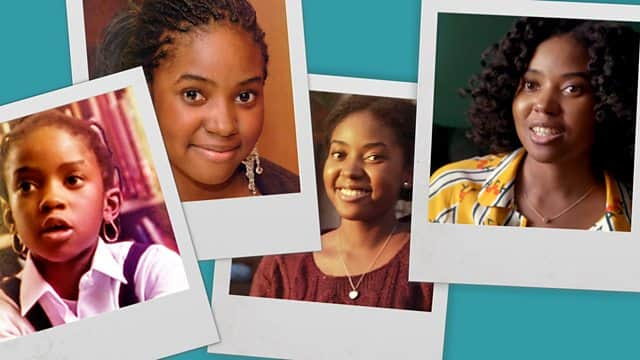28 Up: Millennium Generation: when is BBC documentary on TV, how to watch the 7 Up series - and cast explained


The BBC will air the latest check up with the case studies of it’s 2001 documentary series 7 Up, 20 years after the initial episodes.
It has been described by the broadcaster as it’s most ambitious documentary project, in which it shows how a group of Brits born in the same generation can take completely different paths.
Advertisement
Hide AdAdvertisement
Hide AdSo, who are the people taking part in this documentary and what are their stories? This is what you need to know ahead of its return tonight (29 September).
What is 28 Up: Millennium Generation about?
The idea for the millennial documentary following children who were aged seven at the turn of the century came from the original ‘7 Up’ made in 1964, following the Boomer generation.
At the time, the documentary was supposed to be a one-off which would draw parallels in the lives of 14 Britons from different social classes, race, ethnic groups and genders.
The documentary series, directed by Michael Apted, ended up following the kids for six decades, by which time ‘7 Up: Millennium generation’ director Julian Farino had begun working on a new version, following children who are growing up in today’s world.
Advertisement
Hide AdAdvertisement
Hide Ad“You can definitely see huge demographic changes since the original films,” Farino told The Guardian.


“Not many of our contributors have their own homes, very few are married, and only one has children. While the original series had a strong sense of the nuclear family, a large percentage of our children have parents that separated, and that’s not been a negative or critical thing.”
Farino admits the original series “was the greatest thing that had ever been on television,” and Apted’s work was a huge driver for Farino’s career in television.
In 1999, Farino interviewed over 2,000 seven-year-olds for the documentary, scouting kids from schools, youth clubs and groups. In the end, he found a perfect mix of geographical, race, gender and social class differences.
Advertisement
Hide AdAdvertisement
Hide AdNow, 20 years on, the schoolchildren who took part in Farino’s initial documentary are now aged 28 and their lives have changed dramatically.
28 Up will revisit the cast and show how different, or similar, their lives have worked out as they explore adulthood in the UK.
Who are the children from 28 Up and where are they now?
The original group includes Sanchez from Leeds, Gemma and Ryan from Bolton, John from Slough, Talan from Cornwall, Orala and Oliver from London, Owen from Cardiff and Stacey from New Mills.
Sanchez continues his pursuit for fame as a radio DJ, having been forced to give up his dream of being a footballer due to acquiring a serious injury.


Advertisement
Hide AdAdvertisement
Hide AdGemma is trying to come to terms with her disability - she was born without any disabilities but at the age of two she caught an infection which has left her physically impaired. She attempts to find full time work in the ever competitive job market.
Talan is working to overcome his battle with depression, as he attempts to return to his studies for the second time.
Orala, who grew up in a Nigerian family in Hackney, east London, has moved to Kettering in Northamptonshire so she could afford to buy her own home.
She recently told The Guardian: “Gender roles are different. Technology has had such a massive impact, the idea of falling in line with the whole idea of marriage and kids just because that’s what’s expected of you sounds laughable.”
Advertisement
Hide AdAdvertisement
Hide AdDrawing comparisons between the youngsters who took part in 1964 and those of today, she added: ““Things have become so inaccessible. Before, if you just worked hard enough, you could maintain a certain standard of living. But now it’s completely out of reach.
“The framework that existed about what life should look like, what we should aim for, just doesn’t fit any more. Twenty-eight-year-olds have to redefine what adulting looks like.”
Ryan from Bolton, born with cerebral palsy, now has a full-time job and is finally moving out of his mum’s house and into a home of his own.
The BBC also caught up with John, to find out whether he fulfilled his dreams of travelling the world.
Advertisement
Hide AdAdvertisement
Hide AdOliver was educated at Eton but has re-evaluated his priorities after spending time in the US, as he struggles to settle on a career path.
Courtney wants to prove to herself and others that she can survive and thrive in the toughest of times.
Filming was scheduled to take place just as the Covid pandemic hit, but after two periods of failed attempts, the series was filmed in 2021.
Where can I watch 7 Up, 14 Up and 21 Up?
All previous episodes of the series following the case studies are now available on BBC iPlayer.
When is 28 Up on TV?
The documentary will be aired on BBC One on 28 September at 9pm.
It will be available to watch on BBC iPlayer shortly after being aired on TV.
Comment Guidelines
National World encourages reader discussion on our stories. User feedback, insights and back-and-forth exchanges add a rich layer of context to reporting. Please review our Community Guidelines before commenting.
